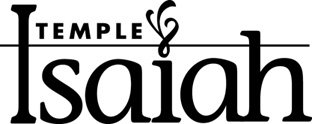Curriculum

In JQuest, we seek to instill in our children and families a sense of commitment to and excitement about Jewish life and Jewish peoplehood. We strive to enable our children and families to understand the Jewish past, while being inspired and empowered to create a Jewish life in the present that is committed to tikkun olam. The philosophy and atmosphere of JQuest invites our students to develop a love of Jewish tradition and the study of Torah, along with the questioning that our tradition encourages. Overall, our goal for children and families in JQuest is to be challenged, inspired, and energized by the power of Jewish ideas and traditions.
In creating curricula for JQuest that will be aligned with these goals, we acknowledge – and celebrate – that there are many different ways to connect to Judaism and Jewish life. Some adults connect to Judaism through prayer; others connect through Torah study, or social action, or singing in the choir. Historically, religious school has been a one-size-fits-all model. Over the last number of years, we developed a new structure for our educational program, one in which families have choices about how to do their Jewish learning. Like adults, children connect to Judaism in different ways, and we are delighted to offer a variety of paths of Jewish learning to match the various learning styles and passions of the children and families in our community.
Please click on one of the following links for more details about our curriculum.
Why are we called “JQuest?”
There are many reasons we decided to change the name of our program from “Religious School” to “JQuest,” but perhaps the most important reason is that the term “Religious School” just doesn’t fit, as neither “religious” nor “school” is a good description of our program of Jewish education for kids at Temple Isaiah:
Jewish education works best when it doesn’t look like, sound like, or feel like “school.” Yes, we have a curriculum and teachers, and yes, our goals include student learning and discovery. However, that’s where the similarities between “Jewish education” and “school” should end. We do not teach subject matter for the sake of mastery of facts or progression from one grade to the next. Rather, we are trying to develop identity, seeking to instill in our children a sense of commitment to and excitement about Jewish life and Jewish peoplehood. Many studies have shown that the best forms of Jewish education (i.e. the ones that ‘work’ the best) are informal - Jewish camps, youth groups, trips to Israel, etc. So the less our educational programs look like ‘school,’ the more successful they will be in trying to achieve our goals of building Jewish identity, connection, knowledge, enthusiasm, and commitment.
Jewish education is not necessarily (and certainly not always) “religious.” Judaism is a religion, but it is also a culture, a people, a way of life, a tradition, a community, a nation, a civilization, a sense of identity and a way of seeing and understanding the world. Jewish education ought to help kids discover various entry points to Jewish life - to see themselves as part of the chain of tradition of the Jewish people, in whatever way that might be. So when we call our program “religious,” it can be misleading. For some people, the religious aspect of Jewish life is essential, compelling, and meaningful. For others, the term ‘religious’ is a turn-off and something to avoid. We do talk about and learn about ‘religious’ things in Jewish education - we explore different connections to God, we study ‘religious’ texts, we experience prayer - but it is a misnomer to say that what we are doing is ‘Religious School’ in its entirety.
We chose the name “JQuest” in order to capture the spirit of Jewish learning, discovery, community, and fun that our students and families experience in Temple Isaiah’s education program. We hope you embrace the name of our program…
Your child’s Jewish journey awaits!

